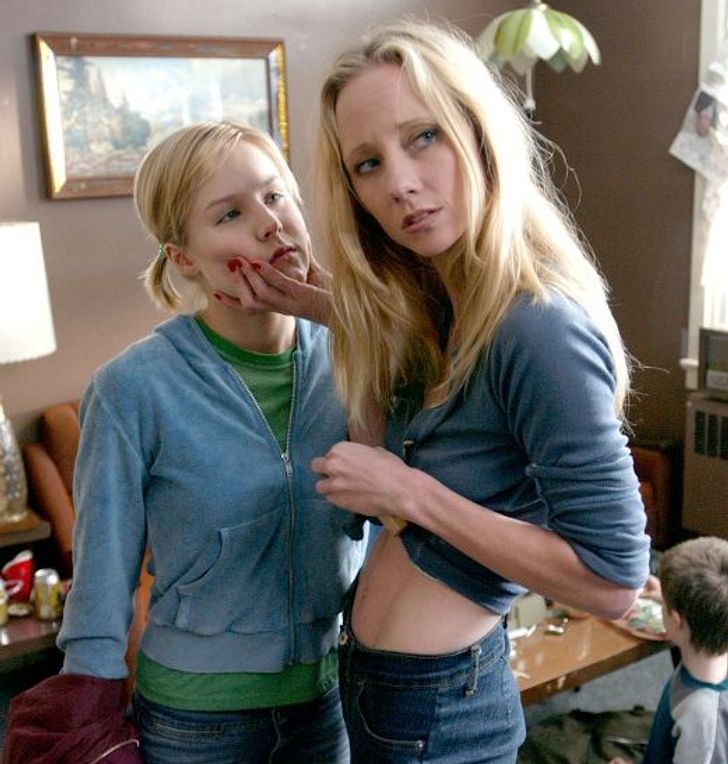Our emotional and psychological well-being is greatly influenced by our relationship with our parents. However, for daughters of unloving mothers, this link may be a significant source of pain that can last forever.
An unloving mother’s influence on her daughter goes far beyond the period of growing up as it affects her self-esteem, emotional stability, and capacity for healthy relationships.

The article uncovers the painful experiences suffered by many daughters of unloving mothers to reveal the devastating effects of these relationships and offer suggestions for healing.
Insight into these struggles will help one break free from a pattern of suffering and create a more satisfying future.
Things Daughters of Unloving Mothers Go Through
Here are seven painful experiences commonly endured by daughters of unloving mothers:
1. Perpetual Sense of Inadequacy
Daughters of unloving mothers can develop a continuous feeling of inadequacy as their dissatisfaction is channelled onto them by the mothers who lack love for them. Their sense of self worth becomes so low that their numerous successes and hard work never seems to satisfy them.

These Things Daughters of Unloving Mothers Go Through that has been ingrained into them can do a lot of damage on their self esteem, leading to a lifetime full of doubt and insecurity. It makes them feel intrinsically defective because they are constantly being criticized or ignored by their mothers.
They could absorb such negative feedback considering themselves unworthy unless they meet her unrealistic expectations. As grown-ups, they always fear of being discovered as inadequate thus grappling with imposter syndrome.
To move past this deeply rooted feeling of worthlessness may require extensive emotional labour, often in the form of therapy or support groups where they learn to overcome the destructive beliefs that were instilled in them during their early years.
2. Emotional Support Deficit
While an affectionate mother gives emotional support, daughters born by indifferent ones often miss out on this essential nurturing. Instead of becoming a source of succor and inspiration, the mother becomes critical or uninterested towards her children’s endeavours.
When girls do not receive any emotional support from their mothers, it means that they have no one else to turn to when faced with life’s troubles and consequently feel alone and unsupported. These girls feel emotionally abandoned in situations where there is no maternal figure to approach during difficult moments.
They might long for acceptance or reassurance without finding it, resulting in feelings of emptiness and isolation. Such people struggle with identifying and expressing personal emotions even when they grow up since learning how best to express such tender emotions was never taught to them effectively before.
Having supportive friends, mentors or therapists around may be important for filling up the empty space left by an unaffectionate mother.
3. Strained Relationships with Others
The relationship between daughters of unloving mothers may distort how a daughter views other relationships as well. They can be unable to create trusting and safe connections with others, always being afraid of being disapproved or let down.

This lack of trust can block their efforts to establish and maintain healthy platonic and romantic relationships. Early experiences of emotional neglect or betrayal by their mothers are often the cause for fear of intimacy and vulnerability in them.
For example, they may use defense mechanisms such as becoming emotionally detached or overly accommodating to avoid getting hurt more. However, these defense mechanisms make it difficult for them to develop true connections with people.
Being able to trust and be vulnerable in relationships takes patience and self-awareness, which are usually developed through introspection and counseling. To build healthy relationships, they must first recognize the effects that their mother’s actions have on how they relate to others.
4. Emotional Neglect and Abuse
Daughters from unloving mothers often experience emotional neglect and abuse which is subtler but more harmful than physical violence. This neglect may come out as apathy, indifference or even outright hostility.
Anxiety, depression, and complex post-traumatic stress disorder (C-PTSD) become some of the long-term impacts making it hard for these daughters to live emotionally healthier lives. Emotional neglect entails when a mother does not adequately respond to her daughter’s emotional needs thus making her feel invisible, irrelevant.
On the other hand emotional abuse might encompass manipulative behaviors like gaslighting constant criticism or emotional blackmails. The scars left behind by such abuses really affect daughter’s feelings about herself as well as ability to control emotions.
To heal from emotional neglect/abuse means recognizing pain setting boundaries that promote self-love compassion resilience in therapy sessions done with empathy
5. Perfectionism and Overachievement
In an effort to earn their mother’s love and approval, many daughters of unloving mothers become perfectionists and overachievers. They set unattainably high standards for themselves, leading to chronic stress and burnout.

The relentless pursuit of perfection is often driven by the deep-seated belief that only by being perfect can they be worthy of love and acceptance. This perfectionism can manifest in various aspects of their lives, including academics, careers, and personal relationships.
They may constantly strive for excellence, fearing that any mistake will confirm their mother’s negative perceptions of them. The pressure to be perfect can lead to significant mental health issues, such as anxiety, depression, and obsessive-compulsive behaviors.
Breaking free from the cycle of perfectionism involves recognizing the unrealistic nature of these standards and learning to embrace their imperfections. Therapy and self-help strategies can be instrumental in helping them cultivate self-acceptance and reduce the relentless pressure they place on themselves.
6. The Battle with Self-Identity
Given their daughters, unloving mothers may tend to impose their expectations and desires on them, thus leaving hardly any space for building their individual personalities. Since they have always tried to fit into the mould of what their mother wants, these girls struggle with themselves and would not know who they really are and what they want from life.
This can result in confusion and aimlessness well into adulthood. Their authentic selves might be stifled if the encouragement they receive constantly requires them to conform to their mother’s ideals; this leads to a fragmented or denied identity.
To satisfy herself, she could end up doing careers, hobbies or engaging in relationships that do not truly reflect who she is. This will involve deliberately rediscovering oneself through self-discovery, introspection by looking at one’s passions, values and goals beyond the control of the mother.
Such people like friends who can help them to discover themselves again or loving therapists can play an important role in guiding them in searching for self again.
7. Guilt and Shame
Guilt and shame are quite common emotions among the daughters of loveless parents.. They might feel guilty about not being able to fulfill her mother’s happiness or meet her expectations. Moreover, social pressures to honor one’s mother’s child can intensify feelings of disgrace thus posing questions about her real worthiness.
It becomes difficult for these women because internalized guilt as well as shame prevents them from ever leading fulfilling lives. For this reason daughters often feel alienated as other women idealize maternalism while these young women experience love-hate relationships with theirs respectively.
They may be embarrassed feeling angry or hurt by a person whom society has taught them should only evoke love causing a failure in developing any positive relationship between several mothers’ daughters,
To overcome such pain then individuals must realize that lack of affection and care shown by their mothers does not lessen their sense of self-worthiness. To unburden themselves, they can seek help from counselors, join support groups and practice self-compassion, as well as understanding their intrinsic worth
A Word From Mind Family
The pain of having an unloving mother is profound and multifaceted, affecting daughters on emotional, psychological, and social levels. Acknowledging and understanding these painful experiences is a crucial step toward healing.
For daughters of unloving mothers, seeking therapy, building a supportive network, and practicing self-compassion are essential strategies for overcoming the scars of their past and fostering a healthier, more fulfilling future.
Healing is possible, and no one should face this journey alone. Reach out, seek support, and remember that your worth is inherent and unchanging, regardless of your mother’s ability to see it.
Frequently Asked Questions (FAQs)
1. How can daughters of unloving mothers overcome feelings of inadequacy?
Daughters can overcome feelings of inadequacy by seeking therapy, practicing self-compassion, and surrounding themselves with supportive people who affirm their worth. Engaging in self-reflection and challenging negative self-beliefs are also crucial steps in rebuilding self-esteem.
2. What steps can daughters take to build healthy relationships?
To build healthy relationships, daughters should work on trusting others, setting healthy boundaries, and addressing any fears of intimacy. Therapy and support groups can provide guidance and tools to develop secure and fulfilling connections.
3. What are some things daughters of unloving mothers go through?
Healing from emotional neglect and abuse involves acknowledging the pain, setting boundaries with toxic individuals, and seeking therapy. Therapeutic practices like cognitive-behavioral therapy (CBT) and trauma-informed therapy can help rebuild emotional resilience and self-worth.
















Leave a Reply